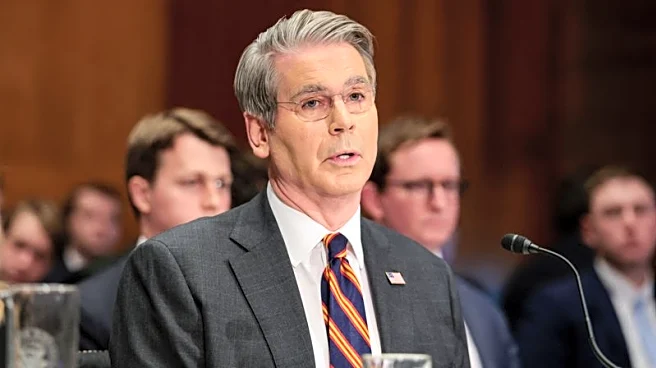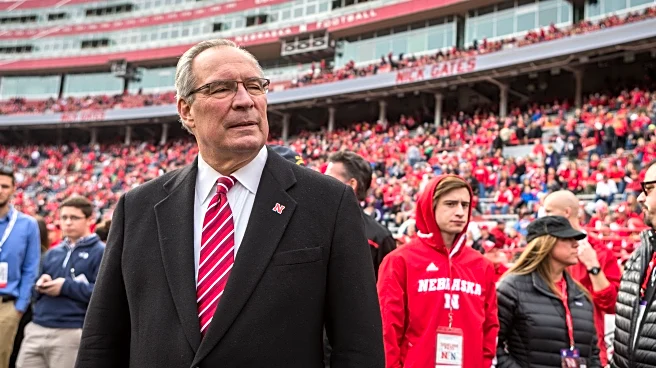What's Happening?
The United States Department of Agriculture (USDA) is under increasing pressure to implement a vaccination program for poultry birds to combat the ongoing bird flu outbreak. The highly pathogenic avian influenza (HPAI) has led to the culling of over 180
million birds since 2022, significantly impacting the egg and turkey industries. Despite the availability of effective vaccines, the USDA has hesitated to deploy them due to concerns about disrupting international trade, particularly for the chicken meat industry. The National Chicken Council has expressed opposition to vaccination without trade assurances, fearing a loss of $4.7 billion in export value. Meanwhile, the egg and turkey sectors, which are disproportionately affected, are advocating for vaccination to mitigate the virus's impact.
Why It's Important?
The decision to vaccinate poultry birds against bird flu carries significant implications for the U.S. poultry industry and international trade. The reluctance to vaccinate stems from fears that it could lead to trade restrictions, particularly affecting the chicken meat industry, which exports a substantial portion of its products. However, the ongoing bird flu outbreak has already resulted in billions of dollars in losses for egg and turkey producers, as well as increased costs for consumers. Implementing a vaccination program could potentially reduce these losses and improve animal welfare. The situation highlights the tension between economic interests and public health, as well as the need for a balanced approach that considers the broader impacts of the disease.
What's Next?
The USDA is developing a vaccination plan to present to trading partners, aiming to ensure that vaccination does not disrupt trade. This plan could pave the way for the introduction of vaccines in the U.S. poultry industry. However, the agency faces pressure from both the egg and turkey sectors, which are eager to start vaccination programs, and the chicken meat industry, which remains concerned about trade implications. The outcome of these discussions will likely influence future policy decisions and could set a precedent for how the U.S. handles similar outbreaks in the future.
Beyond the Headlines
The bird flu outbreak raises ethical and public health concerns, particularly regarding the methods used to cull infected birds, which involve significant animal suffering. The situation also underscores the need for improved biosecurity measures and highlights the potential benefits of vaccination in preventing disease spread. Additionally, the economic impact of the outbreak extends beyond the poultry industry, affecting consumers and taxpayers who bear the costs of managing the disease.

















